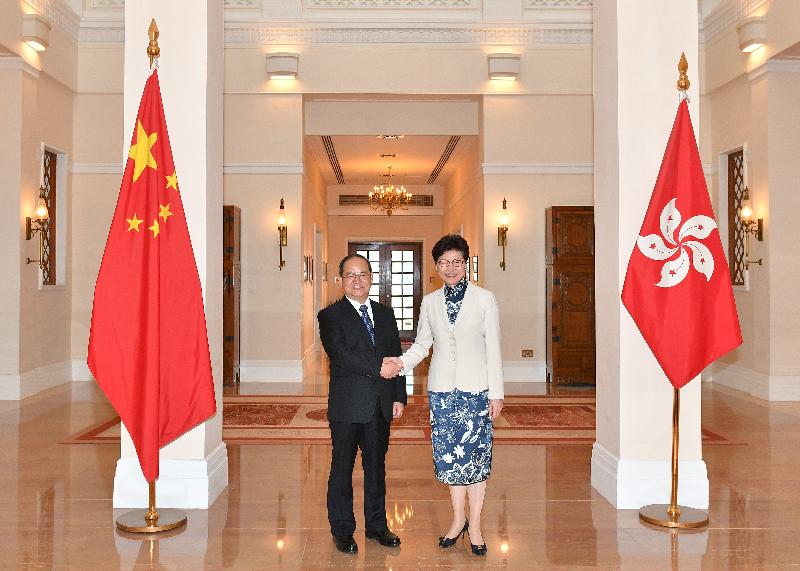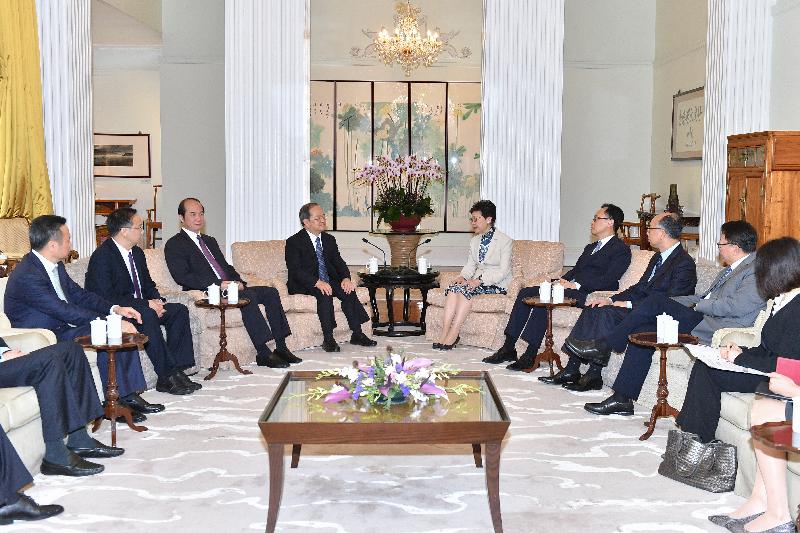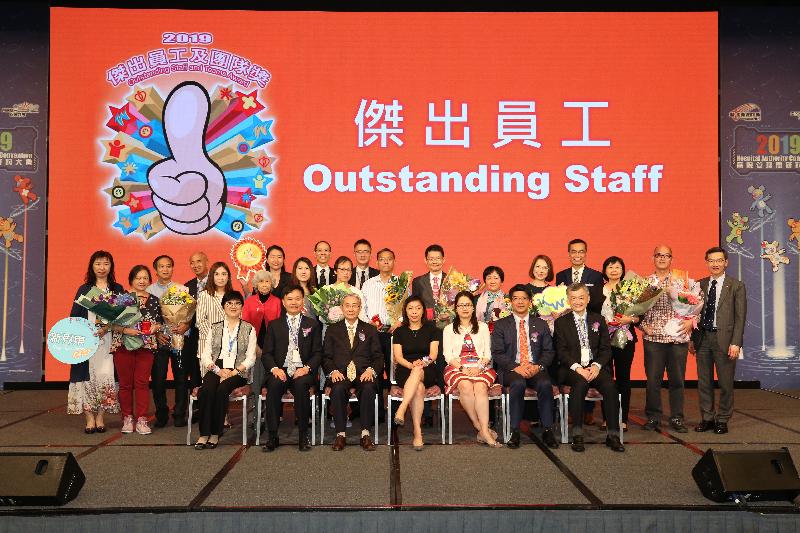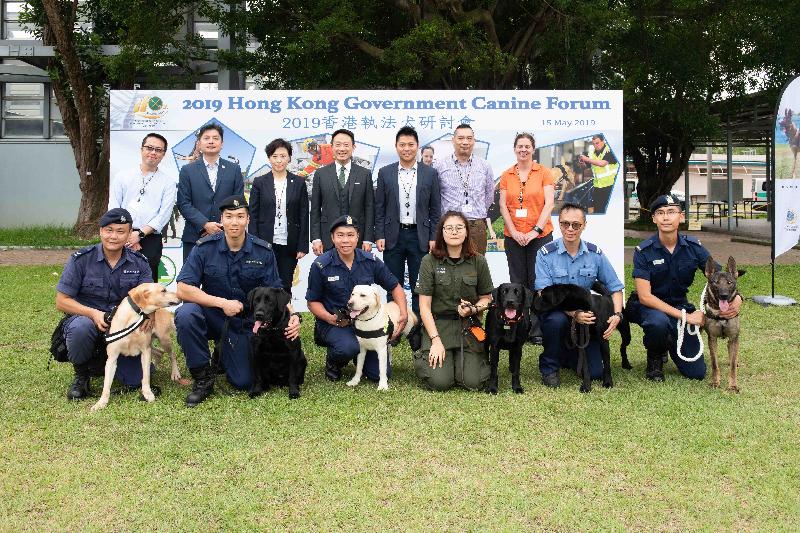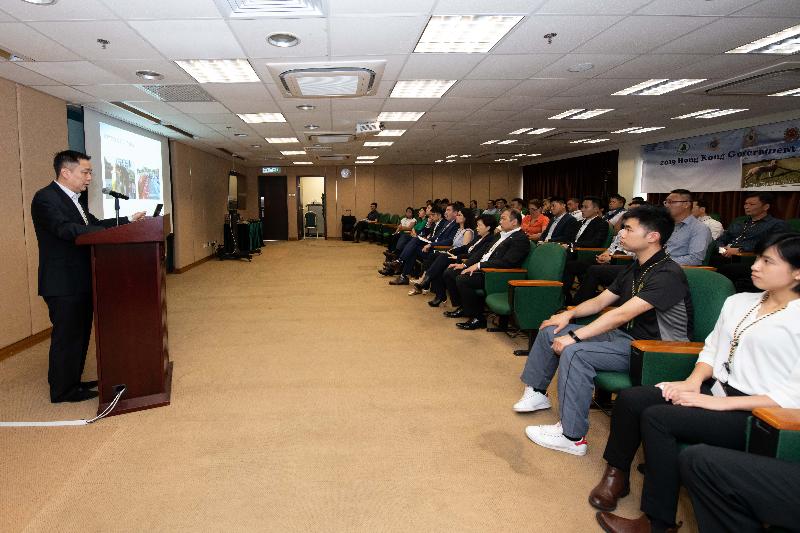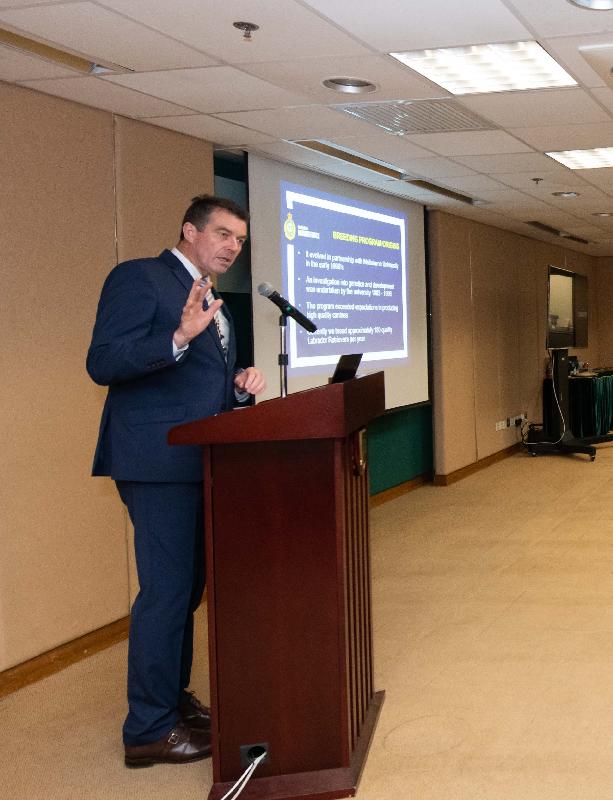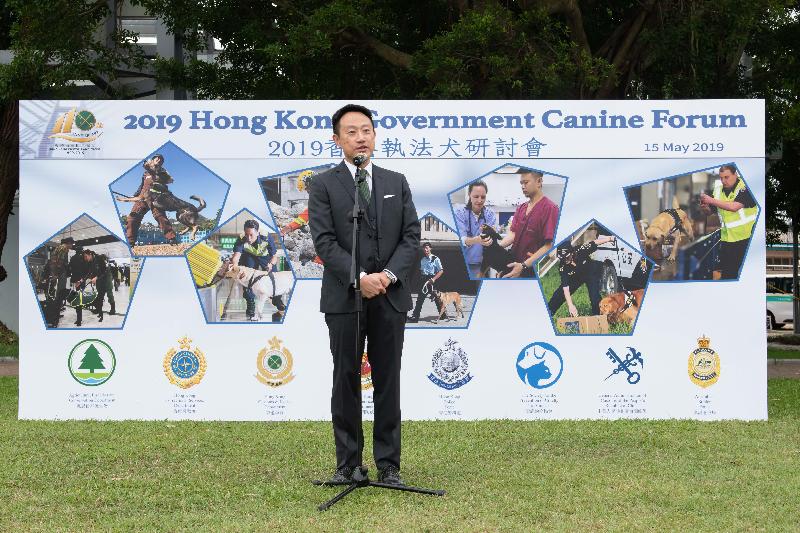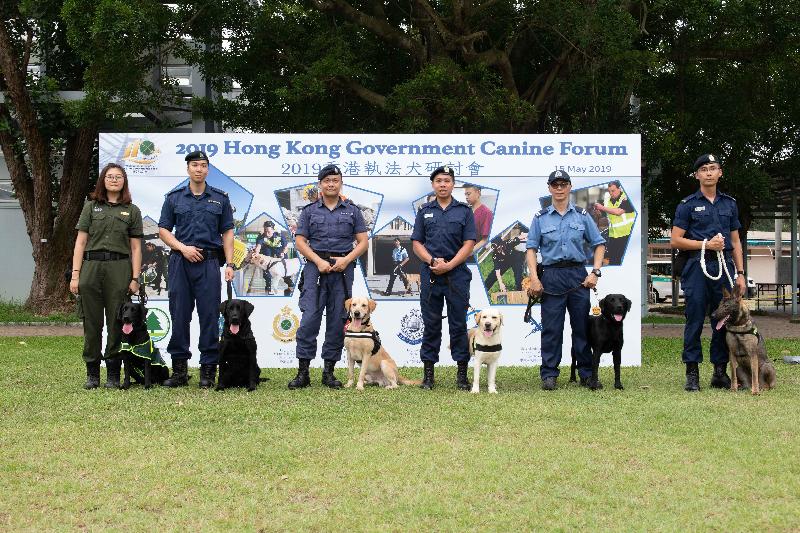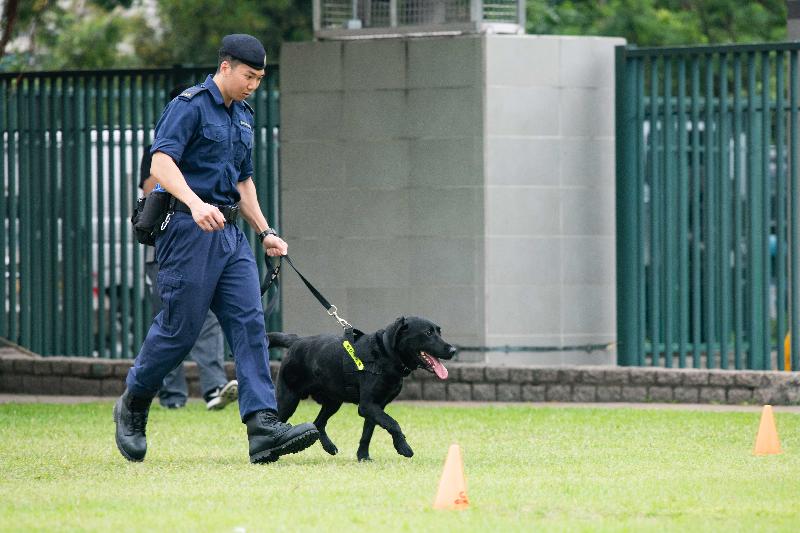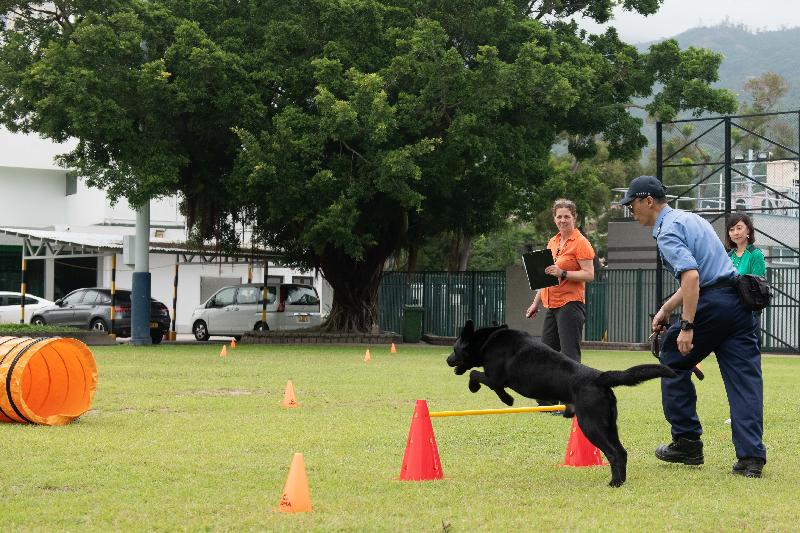Following is a question by the Hon Wu Chi-wai and a written reply by the Secretary for Transport and Housing, Mr Frank Chan Fan, in the Legislative Council today (May 15):
Question:
Regarding franchised bus services, will the Government inform this Council:
(1) whether it knows, since the Kowloon Motor Bus Company (1933) Limited (KMB) launched a monthly pass scheme on March 1 last year, (i) the average number of monthly passes sold each month, (ii) the top 10 bus routes with the highest numbers of passengers using monthly passes and the changes in the patronage of these routes before and after the launch of the monthly pass scheme, and (iii) whether the overall patronage has increased and KMB has correspondingly adjusted the bus frequencies; given that some cross-harbour bus routes are jointly operated by KMB and other franchised bus companies, but the monthly passes are applicable only to those trips made on buses of KMB, whether the Government has requested KMB to explore solutions to this problem; if so, of the details;
(2) as it has been reported that KMB is studying the introduction of a monthly pass scheme for short-haul routes, whether it knows (i) the progress of the study, the launch date of the scheme and the districts to be covered, and (ii) if other franchised bus companies have planned to launch monthly pass schemes;
(3) of the details of the bus routes (i) newly introduced and (ii) cancelled in each of the past five years by various franchised bus companies, including the justifications, effective dates and route information;
(4) as the Guidelines on Service Improvement and Reduction in Bus Route Development Programmes provide that in considering the provision of new bus service, priority will be given to railway feeders or new bus routes serving areas that are beyond the catchment area of existing railways, whether the Government will consider amending this provision with a view to improving the situation that public transport services rely heavily on railway service;
(5) as the Government has subsidised franchised bus companies to install real-time bus arrival information display panels at about 1 300 bus stops on a matching basis, of the respective numbers of bus stops at which the installation work (i) has been completed and (ii) is expected to be completed by the end of next year, and set out the locations of those bus stops in the order of District Council districts;
(6) as some members of the public hope that more large bus stops for bus-bus interchange offering interchange concessions will be provided in various districts in Kowloon (e.g. the bus stop near the Regal Oriental Hotel on Prince Edward Road East), whether there are such studies currently in progress; if so, of the details; and
(7) as the lost trip rates of franchised bus services have risen from 1.6 per cent in 2016 to 2.9 per cent in 2018, of the measures the Government has in place to urge various franchised bus companies to improve such a situation?
Reply:
President,
Our reply to the Hon Wu Chi-wai's question is as follows:
(1) and (2) KMB launched the monthly pass scheme on March 1, 2018. Based on the information provided by KMB, from the launch of the scheme to March 2019, about 15 000 monthly passes on average were sold by KMB per month. Details of the top 10 bus routes with the highest numbers of passengers using monthly passes are set out at Annex 1. The patronage of these 10 routes has increased by a total of about 4 per cent since the launch of the monthly pass scheme.
From March 2018 to March 2019, the average daily patronage of KMB has been on the rise, increasing from about 2.82 million passenger trips to about 2.89 million passenger trips. In addition to the monthly pass scheme, the growth in local population, commissioning of new infrastructure (such as the Guangzhou-Shenzhen-Hong Kong Express Rail Link), introduction of new routes as well as other fare concessions offered by KMB (such as bus-bus interchange fare concessions) have also driven the passenger growth. The Transport Department (TD) and KMB have been closely monitoring the service level of all bus routes, and will adjust the bus service in a timely manner to cope with passenger demand. In fact, KMB has introduced 30 new bus routes and strengthened the service of 87 bus routes between March 2018 and March 2019.
The TD understands that KMB has no plan to introduce a monthly pass scheme for short-haul routes, nor do other bus companies have any plan to launch monthly pass scheme. Given that KMB monthly passes are not applicable to trips made on jointly-operated cross-harbour routes operated by other franchised bus companies, a monthly pass label has been posted on every KMB bus for which monthly passes are applicable for easy identification by passengers. The Government will continue to encourage the bus companies to offer more fare concessions, including monthly passes, for the benefit of passengers.
(3) Over the past five years, the five franchised bus companies have introduced a total of 194 bus routes and have cancelled a total of 54 bus routes, with the relevant details set out at Annex 2.
(4) Heavy rail, operating on dedicated rail corridor and providing high capacity, convenient and emission-free services, has been serving as the backbone of our public transport system. Nonetheless, other public transport modes, in particular franchised buses with high passenger carrying capacity which serve as the road-based mass carrier, still play an important role, particularly for serving areas without direct railway access as well as providing feeder service connecting the railway network and inter-district service. The TD will continue to work with the franchised bus companies to improve the franchised bus services to meet passenger demand in order to provide better public transport services to the public.
(5) To improve the ancillary facilities of public transportation, the Government provides subsidies to the franchised bus companies for installation of real-time bus arrival information display panels at about 1 300 covered bus stops with electricity supply in the territory. The installation works will be undertaken in three phases. The first phase of the subsidy scheme was completed in end 2018, in which display panels were installed at 283 bus stops. The franchised bus companies plan to proceed with the second and third phases of the installation works at about 990 bus stops by end 2020. The locations of the bus stops with the installation of display panels being completed or expected to be completed in various districts are set out at Annex 3 and Annex 4 respectively.
(6) The Government has been actively searching for suitable locations to set up new Bus-Bus Interchanges (BBIs) or upgrade the services and facilities of existing BBIs so that passengers can enjoy bus network with extended service coverage at the BBIs. This also facilitates better resource allocation of the bus companies and thereby alleviating traffic congestion and air pollution. Over the past few years, the TD and the franchised bus companies have set up new or enhanced existing BBIs at Tuen Mun Road, Tsing Sha Highway, Fanling Highway and the Tai Lam Tunnel Toll Plaza. There are also a wider range of interchange routes and more attractive fare concessions to facilitate passengers commuting between the New Territories, Kowloon and Hong Kong Island.
With reference to the experience on these BBIs, the Government has planned to construct BBIs in tandem with the development of certain new or extensions of major infrastructure projects, such as tunnels, bridges and highways, so as to facilitate passengers interchanging for more destinations. Such infrastructure projects include the portal of Tseung Kwan O – Lam Tin Tunnel, the toll plaza of Tseung Kwan O Tunnel and the toll plaza of the Northern Connection of Tuen Mun – Chep Lap Kok Link.
For developed urban areas with relatively high pedestrian and vehicular flows at narrower pavements and carriageways, it is not easy to set up large-scale BBIs. Nonetheless, the Government has been actively improving the existing bus stops to facilitate passengers interchanging between bus routes. Amongst them, the Government has worked with bus companies and completed upgrading the bus stop facilities at eastbound and westbound (outside The Latitude) of Prince Edward Road East in April 2018, including the erection of a new shelter at the eastbound bus stops and the installation of seats at the eastbound and westbound bus stops for passengers interchanging between bus routes. The Government will continue to search for other suitable locations to set up BBIs or upgrade the existing bus stops for the convenience of passengers interchanging between bus routes.
(7) The TD has been closely monitoring the regularity and level of bus services through various channels, such as examining the operating returns submitted by the franchised bus companies, conducting regular surveys and taking note of passengers' complaints or suggestions, etc. Regarding the factors affecting the regularity of bus services, some are within the control of bus companies, such as shortage of drivers and vehicles, vehicle breakdown, etc. However, some of the factors are external, such as public events, traffic congestion, traffic accidents or inclement weather, etc.
The TD notes that average lost trip rate of the bus industry has increased in 2018, and the main factor leading to such lost trips was driver shortage. In this regard, the TD has requested bus companies to improve the remuneration of bus captains, take more proactive and effective actions in bus captain recruitment, and review the journey time of the bus routes concerned, having regard to the actual traffic condition. The TD will also continue to examine with the franchised bus companies the causes of lost trips, direct them to tackle such causes within their control, and urge them to adopt suitable measures to address other external factors as far as possible.
